Graham Shackell, TaP student, received funding towards a summer placement at an archeological site in Greece. Read more below.
My Go abroad experience was a placement with National Cheng Kung University (Taiwan) at their archaeological site school at Toumba Serron, Greece. I was able to secure the placement by approaching the site director directly. Highlights of the placement include delivering a seminar/lecture on the archaeology and anthropology of performance to the site’s students, finds specialists, supervisors and directors of the project. Researching (ethnography), directing, devising, writing and performing the final performance at the end of the archaeological season was another highlight. The performance was both a dissemination of the archaeological data revealed in that season, an exposition of the daily life of the archaeological team, and an exploration via a ritual performance of the importance of water both to the local current inhabitants and of the inhabitants of the nearby neolithic site which was the subject of the excavation. As part of the research, I was also able to excavate, including a potentially highly important neolithic burial – the first of its kind in Northern Greece.
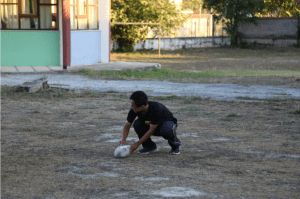
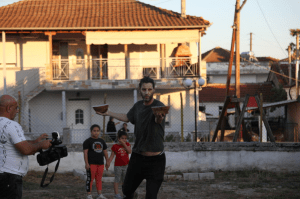
My daily routine varied as the project went on. I started my research archaeologically during the day, digging as part of the team, and in the evenings, I was conducting ethnography in the local village. I was also recording the sounds of the site and team, which formed the basis of the first part of the performance. As the project went on, I stopped digging and began to construct and rehearse the performance. I was also preparing for my lecture/seminar to the team.
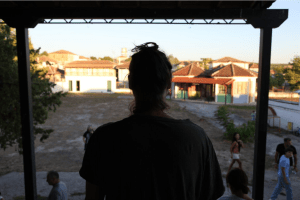
My most difficult challenge was getting to the site, especially as I had booked a late flight to save money; this backfired somewhat, as I had to pay for an unexpected hotel, as I was not able to get the location of the site that night. As a gluten-free vegan, diet could have been a problem, but I informed my hosts before I arrived and was able to navigate local tavernas with relative ease – albeit on a slightly monotonous diet.
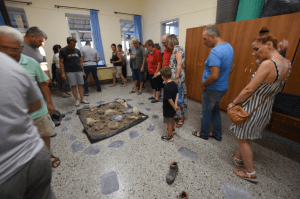
The experience was amazing on a personal level; it felt so good to travel again after COVID and to be so well received, professionally and academically. I would say there were two main advantages of this opportunity. Firstly, to develop and confirm my creative practice and academic direction, and secondly, contacts: I have made a wealth of contacts that would have been otherwise unavailable to me. Going through an intensive month of working with people creates a bond or at least the opportunity for such which has meaning and significance. Professionally and socially, it has also opened doors for me in terms of further opportunities and funding avenues.
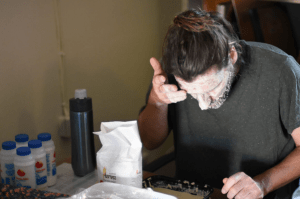 My tips for other students would be to prepare as much as you can before going – but actually, don’t stress too much if everything isn’t actually nailed down either – it will turn out okay. More importantly, embrace every moment of your trip; the personal relationships are as important, if not more so, than professional or academic opportunities. Be real and in the moment, embrace the moment, smile, be happy, appreciate the opportunity and volunteer for everything (well, maybe not everything – but don’t stay at home on social media because you are tired rather than go to the bar with your team, or take part in some planned, or unplanned, activity). Finally, learn what you can, and not just from your planned area of study, but culturally. Learn about the people, learn a language, embrace the experience completely and wholly.
My tips for other students would be to prepare as much as you can before going – but actually, don’t stress too much if everything isn’t actually nailed down either – it will turn out okay. More importantly, embrace every moment of your trip; the personal relationships are as important, if not more so, than professional or academic opportunities. Be real and in the moment, embrace the moment, smile, be happy, appreciate the opportunity and volunteer for everything (well, maybe not everything – but don’t stay at home on social media because you are tired rather than go to the bar with your team, or take part in some planned, or unplanned, activity). Finally, learn what you can, and not just from your planned area of study, but culturally. Learn about the people, learn a language, embrace the experience completely and wholly.